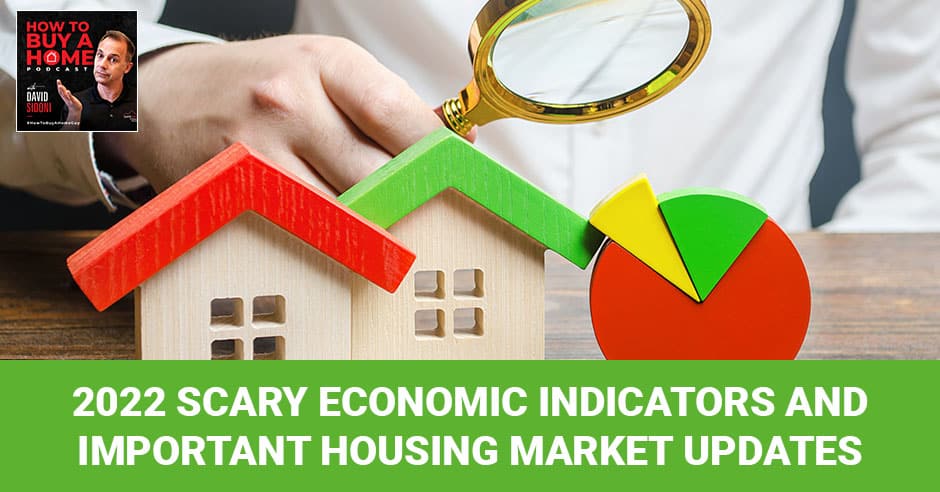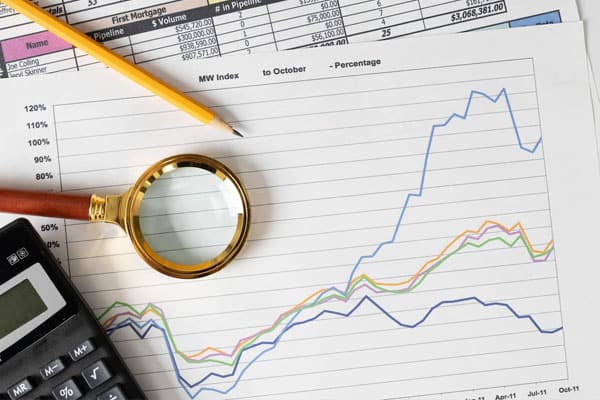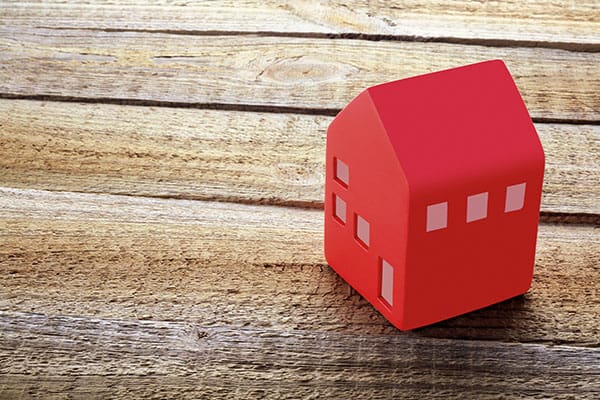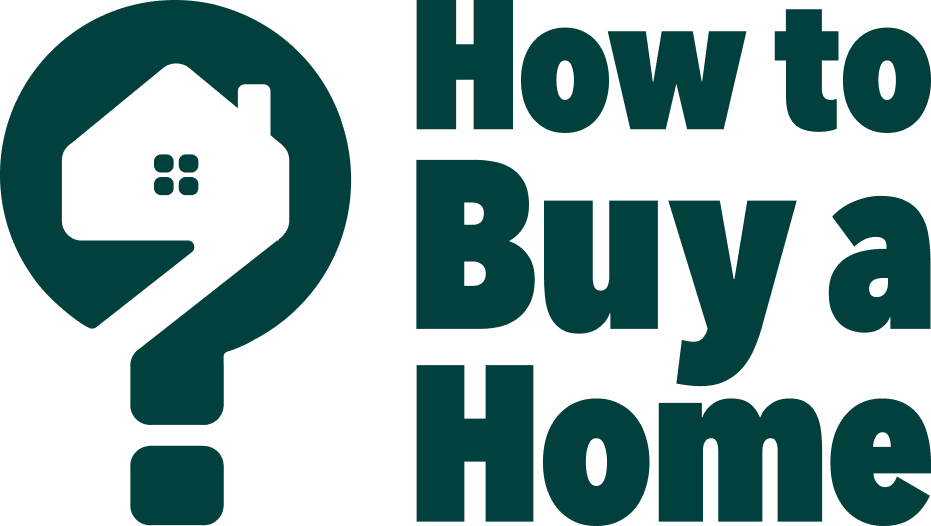
There are cracks right now in the 2022 housing market. This is why it’s better to buy long-term rather than rent. There are early indicators of minor, super small slowing in the housing market run-up. Nobody knows how long this will last, but for now, things are slowing down. Is recession due? Most likely. Are home prices going to increase? Most likely. If this is a dip or the beginning of a return to normalcy is anyone’s guess, but here’s all the data you need to keep on top of. Join David Sidoni as he shares the 2022 scary economic indicators and some housing market statistics.
—
2022 Scary Economic Indicators And Important Housing Market Updates
What First Time Home Buyers Need To Know About The 2022 Housing Market
I always told you that when I see the signs of the end of this housing run-up, I would tell you. I don’t see the big signs yet, but I am seeing the precursor to what could be the end of the insanity in this runaway 2022 housing market, so let’s get into it.
—
I read more real estate information daily than most people do in a year and I still have no clue what to expect in this 2022 market. I told you that I was seeing some signs, but even I don’t know what the hell is going to be happening now. That alone is a scary fact, but we’re going to talk about a lot of the scary facts that are happening in 2022.
If you’re reading this and you’re hoping to get that get rich quick stuff, that ship has sailed. Buying for profit, flipping homes or investing in homes, and all those things people do in real estate, when they’re trying to make money, all that stuff happen with one major factor in mind, home prices going up. That’s the secret sauce. That’s what gets you the free money. It’s called free appreciation. That’s where the money is, but that big run that happened the last several years has to slow down some time. Especially since 2021 was a huge 19.5% increase and so far in 2022, we’ve added another some places 2% or 3% on top of that.
It’s a not-so-perfect storm happening out there in the economy. It’s inflation, mortgage rates rising, potential recession and home prices keep going up. In this episode, I’m going to give you some of the early warning signs that we’re starting to see in some of the cracks that are starting to happen in this current insane housing market, which is going up at a frenetic unsustainable pace. These indicators from the large macroeconomy stuff and the cracks in the market, it’s confirming the fact that this perpetual rise is not sustainable.
For many of you out there, this does not mean that it’s time to sit back and wait for the market to come back down so that you can buy when it’s more affordable. If that’s what you’re thinking, this is the first show you’re reading of me. Read carefully because I’ve been saying something very different than all my other information. Now is my crystal-clear data dump and it’s coming fast. The predictions are going to be not so crystal clear. It’s going to be clear as mud. There are too many factors.
For first-time home buyers, it’s so out of reach that a bunch of people are thinking, “I’m going to buy a smaller place that I’m going to sell in a few years and move up.” You might be able to do that, but you might not. Some of the data shows that things might slow down before that. Read all the data here on what’s going on. We’ve got some weird economic factors happening now.
[bctt tweet=”If you’re going to buy a house now to make a 20% appreciation and sell it for something bigger in the next few years, you shouldn’t be buying.” username=””]
You shouldn’t be buying if your plan is to make a 20% appreciation in the next few years and sell it for something bigger. Where we’re at now is moving towards the top of the market. If not, getting there pretty soon. That means you need to set a longer game plan in place. No guaranteed quick bucks, that’s over. You missed it. The safe play is to change your thinking and to take advantage of the stability of homeownership versus the insanity and instability of rising rents that are never going to stop.
For some of you, it could mean serious compromise, when you realize that the true 7 to 10-year timeline is coming if it’s not already here. Though, for many of you, you’re going to do the math and realize that the seven years of renting is going to cost you hundreds of thousands of dollars, so you’re going to have to suck it up. You have to become a buyer now and that’s your parents’ fault for not having you sooner, or you could have purchased your first home in 2012. Maybe it’s your fault for not reading since 2019 and not pulling the trigger. It doesn’t matter.
This is not to scare you, but to help you stay informed with information, that’s coming to you from a truth bomb advocate. I’m not someone who’s out here trying to sell you and say, “Read this and I’ll help you buy a home with me now.” That’s not what it’s all about. I want you to understand the big picture. Where we’re at is not about superfast appreciation and sexy fun. “Isn’t it great? I bought a house now and I made $50,000.” It’s not what we’re doing, but I can still be the right economic play for many of you. Let’s talk about the cracks in the housing market and the facts in the large economic factors, and we’ll finish with the forecasts for what this means for housing.
Housing Market Cracks
First, the cracks. Minor identifying factors that show that this rocket ship of insane prices going up with no end in sight might have some cracks forming down the side of that rocket. I see three of them in my market. Crack number one, it’s a very slight decrease in demand with a very slight increase in inventory. Both data points are so slight. They’re almost microscopic, but the numbers are out and they’re real.
That doesn’t mean a lot, but it’s the first time in a couple of years, we’ve seen these decreasing instead of increasing. The reality of that and what it means in numbers is instead of 50 people writing offers on a home, it’s only 48. Instead of being three homes available within a mile radius that you’re looking, there are now four. It’s a little better, but not a ton.
Crack number two is that in my area, Southern California, 15% of the homes listed in 2022 did a price reduction. That’s crazy. Since most homes set the price and get bids over the list price, this small percentage is the highest it’s been since 2019. With 15% of them up, that’s the biggest increase we’ve seen in three years. That means sellers are starting to get greedy, which we see happen when the market gets hot and not every home is going to be snatched up no matter what price they put it at.

Crack number three. I know the haters and the negative Nellies all say, “That house is in no way worth $408,000.” Why would a negative Nellie yell that weird number? I did that because that’s the median price of the homes right now. They say it for any home in their neighborhood. What they would say, if they have the stats on the actual median price, they’d say, “No way that $408,000 house is worth $408,000 to date. It was $327,000 a few years ago.”
I get that but let me give you the numbers from the worst crash in housing history ever. Back then in 2007, at the very peak, the highest the median home price got back then was $257,000. In 2009, the lowest it ever got was $208,000. That was over a couple of years, but get this, it was back to the high number of $257,000 in a few years in 2013. Does that mean that this time around the $408,000 median price is going to drop 19% as it did in the last crash? Taking that $408,000 house down to $331,000. Only if we have the worst crash in history again.
If you want to say, “It’s going to be like the last time.” Before I share with you the crack that I see, let me run those numbers by you again because I am about to tell you that I agree with a piece of that guy I was making fun of. This guy is saying, “No way.” I believe that social media dude, the guy yelling to the median home price is, “$408,000. No way, it’s going to get like that.”
I understand because they’re saying, “There’s no way. It’s too high because it was $327,000 a few years ago.” They say that it’s government-inflated. It’s artificial pricing with low mortgage rates. “The government’s printing money. It’s Biden’s fault. It’s the Republicans’ Congress’ fault. It’s not real and sustainable.” The numbers show that even in the worst crash in history, the price has dropped 19% and they got right back to the, “It’s not worth that much” price. They got right back there in a few years.
Here’s something that I am seeing locally here in my market and this is the little crack I’m seeing. There are a few homes, not a lot that is in no way worth what they sold for. They’re selling for way more than the average home prices in their area, even taking into account the natural bumping price that they should be getting because we’re in this crazy hot market. There aren’t a lot of them, there are a few, but I am seeing them.
Here Are The Facts
That’s the cracks. Now, the facts. I’m going to hit you with some of the facts from the big macroeconomic data as well, some of the simple housing data as well. This is not a full-on warning of terrible downturns that are going to be coming your way real soon. It’s a conservative alert to make sure that you’re not anticipating 20% anticipation over the next couple of years.
[bctt tweet=”In Southern California, 15% of the homes listed in 2022 did a price reduction, the highest it’s been since 2019.” username=””]
The first crazy, rents have sucked for a long time, mostly because you don’t control them, but now they suck at an extraordinary level as we see them rising well beyond current wages, incomes and the cost of living. This brings us to the second economic data point, uglier than your sister’s prom date, the cost of living increased due to inflation.
Remember that word you never even heard about in your lifetime. Do you want to know why? Because it hasn’t been like this in your lifetime. Inflation is at 8.5%. That is big and huge. That is Shaquille O’Neal’s feet big. It’s like a generational increase. Here are some stats from an article. The impacts of elevating inflation had been felt throughout the US for months. I look at my wife all the time go, “It’s killing me, Smalls.” If you don’t know that reference, you need to watch better movies.
Inflation is legit. According to a report from the US Bureau of Labor Statistics, “The nation’s inflation rate has jumped once again, setting a record.” The Consumer Price Index, also known as the CPI, shows that inflation surge to 8.5% in March 2022. That’s up 1.2% from February. It’s a huge spike. If it goes up 1.2% in 30 days, 8.5% is a big number.
The index marks the largest twelve-month increase since the period ending December 1981. I haven’t talked about this in a long time. The CPI increase was driven mainly by gasoline, shelter and food, which rose similarly in February amid the Russian invasion of Ukraine. According to the Wall Street Journal reports, Russia’s invasion drove up the March oil prices and hit big records. The shelter index was the most significant factor in the increase in CPI. Shelter factor is a fancy economic word for your rent.
Shelter was also accounting for nearly 2/3 of the monthly increase in the cost of what they call core inflation. We all know about the fact that the food index went up the largest twelve-month increase since 1981. Aggressive inflation will likely force the Federal Reserve to raise interest rates, which they’ve already started to do, and they’re planning on doing it multiple rounds and actively pursuing quantitative tightening.
What’s quantitative tightening? Just know it’s going to be something that is going to raise rates on your loans and on your home loans. For the first several years, interest rate hikes were made in March and Lawrence Yun, the National Association of Realtors Chief Economist. He said this, “That is why mortgage rates have shot up high. Higher mortgage rates will pull home sales down in the coming months and slow home price appreciation.” Some of you are cheering and some of you bought a house and are pissed off. It all works in the 7-to-10-year plan.

Prices Aren’t Going Down
Yun expects the housing market to see a 10% reduction in home sales by the end of the year and a 5% price gain by the end of 2022. To be clear on this, I am hearing and seeing so many trolls. They don’t think they’re trolls and people believe them. They’re doing these clickbait posts on social media. All over TikTok and everything saying, “It’s going to crash. Even ahead of the realtors’ economic stuff said that the market’s going to drop 10% this year.”
They’re saying, “It’s even your own guy who is saying it.” First of all, thank you very much for all your super rad and well-thought-out snarky comments on all my posts, calling me a slimy, greedy realtor, pushing people to buy in a bubble. It’s totally fun. Though I feel you and I understand it because a lot of realtors are like that and I get it.
You don’t know me. I understand why you’d want me into the group of realtors that do indeed come off as slimy and greedy in trying to push you into something when the market’s moving out of control, but I’m here to give you the big picture and to help good people achieve good things in good times and bad times. I believe in the long game of buying a home versus renting for a longer period.
The guy who mislabeled me, you’re wrong in your yelling rant. What you said is not what my guy said. My guy didn’t say the things were going to go down 10% in prices. The experts have adjusted their statements by 10% in the total sales, not the prices. We’ve seen a year’s worth of price growth in the past few months.
With inflation, a potential recession, mortgage rates going up and global uncertainty, we have hit an affordability crunch faster than anyone thought we would. That means yes, even my guy and other real estate experts are coming up predicting that sales will go down 10%, perhaps even plateau within a year and that the sales will be 10% less than the previous predictions. That’s the number of homes sold, not home prices dropping by 10%.
This is another one I saw too. Someone said, “Why aren’t you telling everyone that foreclosures are up 700%?” You’re right. Foreclosures are up 700% because they were at nothing. They’re up 700% right now, but they’re still 40% below where we were in 2019 pre-pandemic. I didn’t hear anybody freaking out in 2019 when they were 40% higher.
[bctt tweet=”Dump renting and lock into a smart purchase for yourself, a long-term fixed shelter situation.” username=””]
I’m going to do a TikTok on this. I’m going to take a glass and show them what 700% looks like versus where we were in 2019. It’ll be like a little sliver at the bottom of the glass and then 2019 will be half of glass full. Once again, I want to make sure that you, as a buyer, believe in the long-term numbers and know that I am not the secret show to help you cash out right now in 2022 with big dollars.
Recession & Home Prices
I am the secret show to help you do what you want to do anyway. Dump renting and lock into a smart purchase for yourself. A long-term fixed shelter situation that will in 10, 20, 30 years mean you have more money and more choices than if you had rented for the next decade, regardless of what happens with the market. Are we due for a recession? Yes. Did I answer too quickly? Deal with it. Yes, we are.
In fact, I did a show in 2019 saying a recession was coming again. This is not the get-rich-quick-time show. This is boring, methodical, do the math and grow your wealth by replacing your rent with a mortgage time show. The good news is home values have increased in three of the last five recessions. One of those, only decreased by less than 2%. The fifth one was the big housing crash and that’s not happening again. Housing is not going to be why we crash. Not this time.
In the 1980 recession, home prices went up 6.1%. In the 1981 recession, home prices went up 3.5%. In the 1991 recession, home prices only dropped 1.9% and in the dot-com bubble burst of 2001, home prices went up 6.6%. If you don’t know what the dot-com bubble burst is, do not get on TikTok and tell me you don’t know what I’m talking about. You must follow and understand the history to understand where the housing market’s going to go and how all the data works together.
Three of the last five recessions, housing was up. One of them was down by a little bit. People survived these recessions because housing is the best hedge against inflation. I’m not telling you you’re going to get rich quick. I’m telling you this is the way to prepare, to hunker down. It’s not a huge gain profit machine. It’s a hedge. In betting terms, if you hedge, that means you put one bet against another one because you know one of them was turning into a big loser.
A lot of people bet at halftime to hedge their bet because they realize in the first half that their regular bet is not going to work, so then they go and they bet against the other team or the bet against the spread. If you don’t understand that, good. You’re not a gambler, and you’ll have more money for a down payment on your house.

Our not-so-perfect scary economic storm has inflation, rising interest rates with the mortgages and with the Fed and has more arms on social media, screaming wrong numbers and it has a potential looming recession. Here’s another fun indicator. The bond markets yield curve is inverted. That means the yield on a two-year treasury bond is now greater than the yield on a ten-year treasury bond, turning into a spread negative.
Get ready and lock-in. It’s time for an economic nerd convo. You never wanted to learn and I’m going to shove it down your throats, whether you like it or not. The United States curve has inverted before each recession since 1995, with a recession following between 6 and 24 months after the curve. According to a 2018 report by the researchers at the Federal Reserve Bank of San Francisco, it offered a false signal only once during that time.
According to Anu Gaggar, Global Investment Strategist for Commonwealth Financial Network, who looked at this curve for the two-year and ten-year bonds. There have been 28 instances since 1900 where the yield curve has inverted. In 22 of those episodes, a recession has followed. Twenty-two out of twenty-eight a recession followed. The lag between the curve inversion and the start of the recession averaged about 22 months.
It means those stats that you never cared about before and you still don’t remember after reading them. It means it’s telling you something. In the past, a recession has come about two years after what happened in March of 2022. That’s the yield inversion. Will it happen again? It did 22 out of the last 28 times since 1900. I don’t know the numbers. You do with it what you want.
What Should You Do Now?
I said in 2019 and I’ll say it again. The stock and housing markets have been going up for too long. What’s coming are flattening, stabilization, normalization and correctinization. It’s going to come sooner rather than later. This is not going to be another ten years of this. All the more reason why an understanding of this whole thing with buying a house and the math is important to you. If you’ve soiled your pants in fear, first of all, “Change your undies.” Take that all into account. “What should home buyers do?”
While realizing that I was going to give you the pre-warning signs and all the scary economic stuff, the market is potentially going to take a slow turn, it’ll take a while for it to happen. This is what Forbes has to say about where the housing market is going. Homebuyers are faced with tough choices in this market. Predictions indicate that home prices will continue to rise and new construction will continue to lag behind, putting buyers in a tight housing situation for the foreseeable future.
[bctt tweet=”In three of the last five recessions, home prices have always increased.” username=””]
For some buyers that could mean moving away from the big cities into more affordable metros, we’re seeing that a lot. The out-of-office people moving. For others in stretching their budget or compromising on the size of the amenities, then there are buyers that are willing to roll the dice and forgo the important contingencies like the home inspection in order to sweeten their offer.
Even Forbes says this could end up costing more in the long run, if the house ends up having major problems that aren’t detected or not fixed by the seller after the inspection that would have happened. On the other hand, snagging a home now, even if it means sacrificing other purchases, could mean saving money down the road as home prices and equity continue to rise. There’s a chance they could save by getting a house and locking in the rate before both the mortgage rates and home prices increase.
That’s what Forbes said and honestly, they’re smart. Mostly because it sounds like a summary of all of my 2022 show, again, the opposite opinion or the opposite can be true when there’s the risk that limited supply with rising inflation could get so extreme that it hurts the housing market and prices fall, particularly if the economy goes into recession.
David Dworkin, the Chief Executive Officer of the National Housing Conference said, “If we fail to address shortages in the housing supply, we run the risk of fueling fires of inflation rather than extinguishing them. The result could be stagflation. A word most of us haven’t used in a generation. That’s high inflation and an economic recession that would devastate the housing economy and only exacerbate our current housing supply challenges.”
If home prices drop suddenly, buyers are going to be stuck in homes that eventually might get to the place where the same value as they bought it, and potentially even underwater. It means they have to stay in a home and wait until the market rebound or they sell the home and they have to lose money. While housing experts predict that this scenario is unlikely, still it shouldn’t be ignored. That’s what Forbes says, covering their butt. Forbes has given you the what’s what.
I can’t predict what’s going on, but I can help warn you that you need to be playing the long game now. This could be your home for a while. Be prepared when you’re looking at houses now. For many of you, that’s still going to be better than paying rent for nothing for years. You could still catch some appreciation because it’s not happening yet.

Remember my cracks, the precursor, which means you can get equity over the next a few years and get a little cushion before what could be an economic change. Don’t go into bidding wars or even paying over the appraised value of the home, thinking that you’re going to be fine because it’s going to go up for years. There are instances where this tactic should be applied so that you can get home right now, it has to be carefully thought out on whether the home, neighborhood, time and your big entire economic plan are worth it for you in the long run.
Don’t Move Just Yet
An important consideration in this market is, “How long do you plan to stay in the home?” People who are buying their forever home have got a lot less to worry about for everything that I’ve talked about it. The market reverses, you can ride them out, all the waves up and down. Buyers who plan on moving in a few years, you’re in a riskier position. If the market plummets, then you’re going to have to be able to make moves, but where are you going to be in your economic position? That’s why it’s so important to understand from the outset that your realtor and lender need to be experienced housing experts in your market, wherever you are. You need to trust their sound advice.
Here are some of the Forbes data to back up this warning. The housing market appears to be operating with outbreaks as home prices continue to climb. The median list price shot up in March to a record high. Mortgage rates continued to tick up and buyers aren’t backing down. We’re seeing this everywhere. Unicorns are telling me it’s happening all over the US and Canada.
As more signs indicate that the housing market is on a fast-paced, upward trajectory, many are wondering, “Are we entering a housing bubble? Will the market crash or at least deflate at any point in the near future?” Forbes Advisor asked nearly a dozen housing experts what their forecast is for the housing market for the next years. While most experts expect home buying demand to continue, there are some warning signs that home prices could falter amid the rising inflation and political uncertainty.
They did say this, “The Federal Reserve Bank of Dallas identified signs of a brewing us housing bubble.” They put that in a blog post on March 29th. I didn’t know housing nerds knew how to do a blog. Though the sharp increase in home prices itself does not indicate any bubble to report, there are fundamental factors to consider including, shifts in disposable income, the cost of credit and access to it, supply disruptions, rising labor and raw construction material costs, among the economic reasons for a sustained house price gain.
According to the report, what causes the housing market to be unhinged from those fundamentals is when there’s a widespread belief that robust price increases will continue, and the purchases arise from a fear of missing out. Forbes is trying to talk about FOMO. It can drive prices up and heighten expectations of strong price gains. Even though the report called the current housing market abnormal, the authors concluded this, “There is no expectation that follows from housing correction would be comparable to that of 2007, 2008, and 2009. It won’t reach that magnitude.”
[bctt tweet=”Understand the math of the waiting, the math in rising rents paid while saving money and waiting for a deal. ” username=””]
Hot Housing Market
Why won’t it? It’s because household balance sheets appear to be in better shape. Excessive borrowing doesn’t appear to be fueling the housing market boom. It’s not just this doesn’t appear, Forbes people. It is not. I told you that borrowing against your house would make the last crash happen. These market regulators are better equipped with tools and early warning detectors to thwart such a crisis. After that, they’re going to tell you why the housing market is likely to stay hot and it is likely to stay hot for a little while. Even if the yield inversion is right and we do have a recession in a couple of years.
You’ve got a couple of years left. If you were thinking of a major turndown to snag a cheaper home, think again. Forbes says, “Most housing experts are predicting the market to remain strong for a while for several reasons.” I have to agree with them because there’s a crack, 50 offers on a house down to 48 doesn’t mean it’s slowing down anytime soon.
The number one thing they said is, “Millennial demand for housing is up with Gen Z right behind them. The number of potential homeowners is plentiful. With Americans who are either Millennial-aged or younger making up half of the US population, this is significant because the home buyers represent the largest number of people.” They said there are a lot of people and all those people want to buy houses.
Number two, they said, “Supply can’t keep up with demand.” Do I need to go into this? I’ve said it in every episode in 2022. Rick Sharga from RealtyTrac said, “The supply-demand imbalance is the primary reason home prices have escalated so quickly. After not building nearly enough homes for the last several years, home builders will take several years to add enough new supply to balance the market.”
The second thing they talk about is demand, which we’ve been talking about forever. The number three thing they say is, “Borrowers are less likely to default on their mortgages.” I’ve talked about this to death with all the big bubble believers out there. It’s different this time. Loans are harder. We get to number four which is the warning signs that could dampen the housing market. This is where they’re going to hedge their bet. They told us three reasons why the market’s going to keep going up, but we’re throwing in the unknown.
The article talks about the murmurs of recession, inflation rising, the Federal Reserve’s response to the inflation hike, raising their rates in March and going to do it the rest of the year and a sign that there could be a slowdown. As Fed Rate raises, it doesn’t necessarily correlate exactly with the mortgage rates, but it does affect short-term credit, not home credit like credit cards and all that stuff.

They then mentioned the Russia thing. Selma Hepp, the Deputy Chief Economist at CoreLogic said, “Geopolitical conflict seems to be the wild card and the one that could have further impacts on inflation, which is likely to persist longer than initially anticipated. As a result, the Federal Reserve is expected to start removing its accommodating policies, including bringing those rising interest rates. An aggressive increase in rates could bring about more softening particularly in the housing market, if mortgage rates spike.”
Final Takeaways
To sum up the mind-numbing real estate stats, “The end is coming,” maybe. Forbes and other smart people think that it’s going to stay hot for a bit, but they don’t know how long. I can predict what’s going to happen and apparently, none of the other economic geniuses can either, but I can guess some of the things based on the historical pattern and the data that is coming to us from these economists. If you’re waiting to get in because you don’t want to overpay, be sure that you understand the math of the waiting.
The math in rising rents paid while saving money and waiting for a deal often can offset the negative, big time. This is the time to think about your home purchase in the long term to understand that you might compromise some on your dream. We’ve all made compromises and purchases in our life. If we all wanted to buy the best computer, car, or whatever, then we’d all be broke but at some point, you got to make choices. We all do the best that we can with what we’ve got. For this one particular purchase, the difference is that you’re already paying a large amount of rent for something.
Owning now is based on the long-term strategy. If you play it like that and the market does keep going up for a few years, good for you. If you wait, it means that you could miss out on that. Either a long-term play to hedge against inflation and rising rents or if it keeps going up, you could miss on what could be some instant equity.
This is real honest, fact-driven and likely sleep-inducing information. It was brought to you by your advocate and that’s me. I am not selling anything to you. I’m not telling you that everyone should use me to buy a home. That’s not what I’m doing. I’m saying, “Find your path.” I want this to be helpful for you because no one’s out there talking to you with the real intention of trying to make sure that you understand the best thing to do for you and your family, no matter what’s going on in the market.
If this was helpful for you, please drop a review on Spotify or Apple, so other people can find this podcast and learn for themselves. I don’t know why shows don’t rank and show you which ones are the most popular, it’s all about reviews. If you’ve been a long-time reader and you haven’t done one, write me a review. It’s helpful.
It’s the only way that I can tell people I’m legit because I’m not telling them, you are. Your words mattered to other people who are looking for the no BS, real-life info. Find more stuff @HowToBuyAHome on TikTok. It’s goofy, playful, and fun. I’m at @DavidSidoni on Instagram and the How to Buy a Home podcast on YouTube. There are lots of great content there too. No matter where the market is, if it makes sense for you and you want to move forward, you can do this.
Important Links
- Spotify – How to Buy a Home
- Apple – How to Buy a Home
- @HowToBuyAHome – TikTok
- @DavidSidoni – Instagram
- How to Buy a Home podcast – YouTube
This podcast was started for YOU, to demystify things for first time home buyers, and help crush the confusion. After helping first timers for over 13 years, I knew there wasn’t t a lot of clear, tangible, useable information out there on the internet, so I started this podcast. Help me spread the word to other people just like you, dying for answers. Tell your friends, family, and perhaps that random neighbor you REALLY want to move out about How to Buy a Home! A really easy way is to hit the share button and text it to your friends. Go for it, help someone out. And if you’re not already a regular listener, subscribe and get constant updates on the market. If you are a regular and learned something, help me help others – give the show a quick review in Apple Podcasts or wherever you get your podcasts, or write a review on Spotify. Let’s change the way the real estate industry treats you first time buyers, one buyer at a time, starting with you – and make sure your favorite people don’t get screwed by going into this HUGE step blind and confused. Viva la Unicorn Revolution!
Instagram @DavidSidoni
Tik Tok @howtobuyahome

